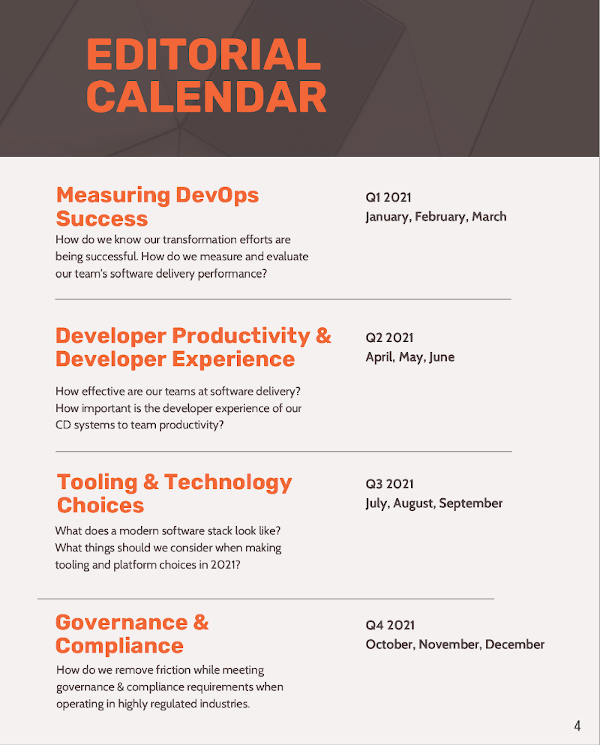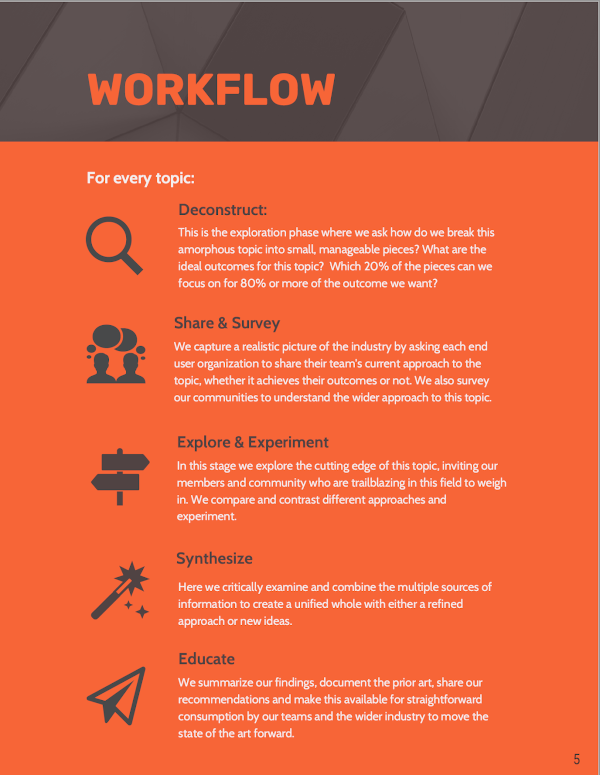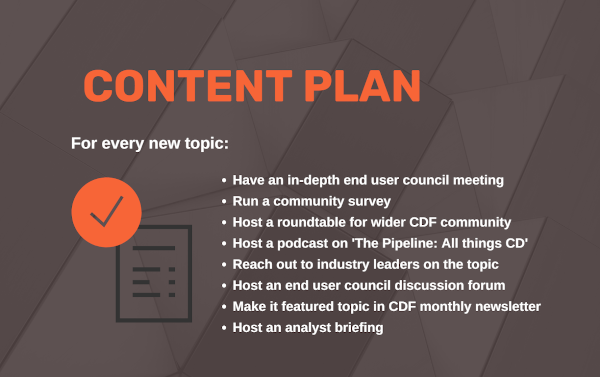Camille Fournier, distributed systems expert and author of The Manager’s Path, wrote a gem of an essay titled Make Boring Plans. “Making Boring Plans” is the perfect medicine for an industry that is currently drunk on buzzwords.
The post is a primer for setting technology strategy in the face of novel technology. It sets out a principled approach rather than one relying on vision and hope.
“Good strategy identifies a problem with the current situation, proposes a principled approach to overcome it, and then shows you a coherent roadmap to follow. Strategy is not in the business of razzle-dazzle, it’s in the business of getting to the core of the issues so that the solution becomes simple and obvious. Good strategy provides the clarity that enables boring plans.”
The context of the post is Platform Engineering – where the team that builds the software infrastructure that all of engineering relies on must figure out how to effectively evolve as they look to adopt novel technologies as part of their modernization efforts. We can also take these principles and apply them to CD.Foundation’s plans for 2021. Here’s how we are making our plans boring.
Don’t start and end with the vision
We believe every team can be a high performing software delivery team. The CD.foundation mission is to improve the world’s capacity to deliver software with security and speed. We want to be the trusted open-source community that supports teams in their continuous pursuit of software delivery excellence.
That is our starting point from which we have to go beyond to figure out the concrete actions and plans.
Avoid unnecessary buzzwords
There is no shortage of industry buzzwords and trends we could anchor our plans around: DevSecOps, GitOps, BizDevOps, MLOps, etc etc. While there is value in these topics they are not the starting point. The starting point is the problems being faced by the teams in their modernization efforts.
Identify a problem with the current situation
We are fortunate to have a great set of varied end-user member organizations, who come together in our end-user council and share the challenges they face trying to modernize and improve.
One of the big challenges often boils down to overabundance of information, usually without the specific context they need -so it is a full-time job just to find the best place to start. So the group started by picking 4 key problems they will focus on.
Have a principled approach to overcome it
Each topic is a big huge area to tackle, so it requires an approach to break it down, scope it and figure out how to bring together the wider community to tackle it. We want everybody to join in— think of it as “industry swarming”. So here is the workflow we are going to apply to do this:
Be Predictable
We will focus on each topic for at least 3 months and want to give a predictable way for the community to engage on this topic. Here is the content plan outline and we are working on putting together the first version for “Measuring DevOps Success” so we know how this works in reality.
Write down what we’re learning.
The key will also be to write down what we’re learning so we can share that with others in our teams and communities. For now, we will use GitHub Discussions as the forum to capture discussion points until we summarize them – feel free to join in the conversations as we get going.
Start, iterate and continuously improve
You can download the full version of the CDF End-User Council 2021 Plan (PDF). We are just starting on this journey together and we plan to start, learn as we go and iterate and improve. The first topic we are tackling is ‘Measuring DevOps Success’. We’ll let you know how it goes – or better yet join us in this journey. As Fournier says, “So leaders, you owe it to your teams, and to your users, to free them from the tyranny and stress of uncertainty.“
In that vein, if we want to truly help our community, we need to lead by example: going beyond our vision, creating concrete actions, and making boring plans.


